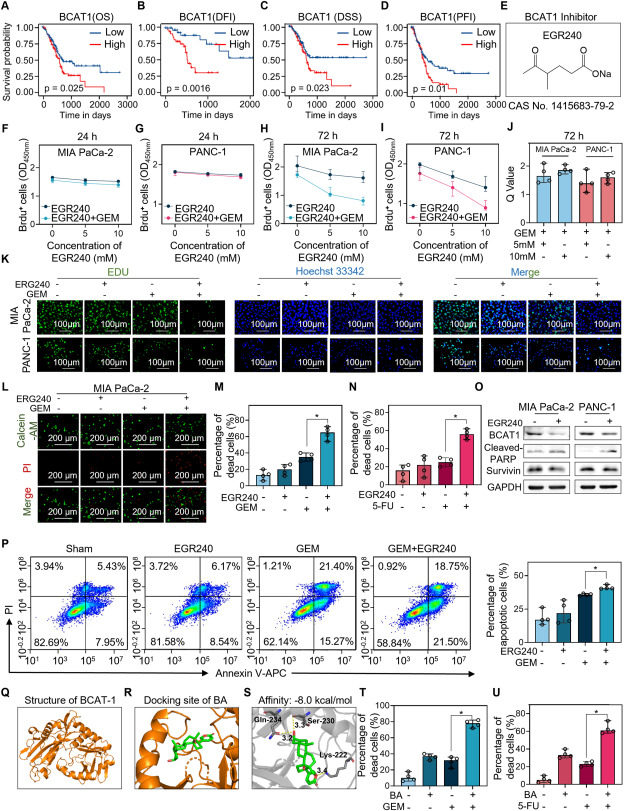
A novel BCAT1 inhibitor bufalin sensitizes pancreatic cancer cells to chemotherapy


Pancreatic cancer is one of the most lethal cancers worldwide and is characterized by a poor prognosis.1,2 Due to its aggressive nature and lack of early symptoms, most patients are diagnosed at an advanced stage, and chemotherapy is the optimal option.3,4 Epidemiology, the incidence rate of pancreatic cancer has increased in the last two decades, from 196,000 patients in 1990 to 441,000 in 2017. Based on 2020 global cancer statistics, the annual cases of pancreatic cancer have increased to 195,773.4 Unfortunately, patients demonstrate resistance to chemotherapy, and only some of them benefit from current therapeutic strategies.5 Systemic chemotherapy has been widely applied for the treatment of pancreatic cancer. However, inter- and intratumoral heterogeneity, especially changes in genomic and immunological profiles, can lead to therapeutic resistance. Moreover, SMAD4, BRCA1/2, and PALB2 mutations have been associated with therapy resistance in pancreatic cancer.4 This highlights the urgent need to explore the underlying mechanisms of chemoresistance and to develop innovative therapeutic strategies.
